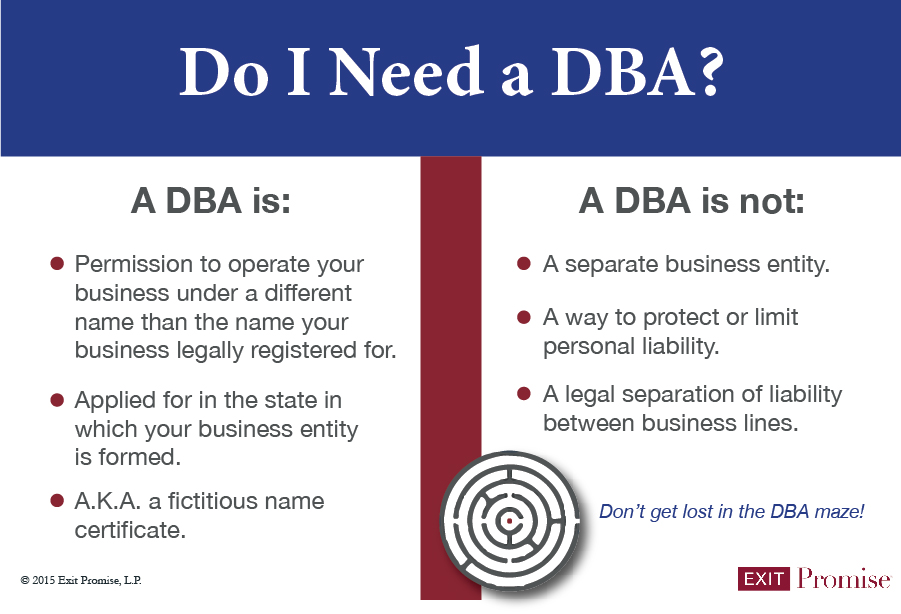Benefits of a DBA
Welcome to our comprehensive guide on the benefits of a DBA (Doing Business As). In this article, we will delve into the advantages of registering a DBA for your business and how it can positively impact your brand, credibility, and growth. Let’s explore the key benefits below.
Enhanced Branding
A DBA allows you to create a unique and memorable brand name for your business. By registering a DBA, you can operate under a name that is different from your legal business name. This gives you the flexibility to choose a brand name that aligns with your target audience and effectively communicates your products or services.
Increased Credibility
When you operate under a DBA, it adds a layer of professionalism and credibility to your business. Customers and clients tend to trust businesses that have a distinct brand identity rather than those operating under generic names. A DBA helps to establish a strong brand presence and build trust among your target audience.
Flexibility and Expansion
A DBA provides you with the flexibility to expand your business offerings without the need to create a separate legal entity. If you want to introduce a new product line or offer additional services under a different brand name, registering a DBA is a cost-effective solution. It allows you to operate multiple business ventures under one legal entity, simplifying your administrative processes.
Separation of Personal and Business Finances
Registering a DBA enables you to keep your personal and business finances separate. This separation is crucial for maintaining accurate financial records and simplifying tax filings. With a DBA, you can open a business bank account and accept payments under your brand name, ensuring a clear distinction between personal and business finances.
Local Market Penetration
If you plan to expand your business into different geographical areas, a DBA can be highly beneficial. By using a DBA, you can create a local presence and establish your brand in new markets without the need for complex legal procedures. This allows you to tailor your marketing efforts to specific regions and target local customers effectively.
Cost-Effectiveness
Compared to forming a separate legal entity like a corporation or LLC, registering a DBA is a more cost-effective option. The process of obtaining a DBA is generally simpler and less expensive, making it an ideal choice for small businesses and startups with limited resources. It allows you to operate under a unique brand name without significant financial burdens.

In conclusion, registering a DBA offers numerous benefits for businesses looking to establish a strong brand identity, enhance credibility, and expand their operations. By operating under a distinct brand name, you can effectively target your audience, maintain separate finances, and penetrate new markets. Consider the advantages of a DBA and take the necessary steps to register one for your business today.
Frequently Asked Questions – Benefits of a DBA
1. What is a DBA?
A DBA stands for Database Administrator. It is a professional responsible for managing and maintaining an organization’s database systems.
2. What are the benefits of having a DBA?
Having a DBA offers several advantages, including:
Improved data security
Enhanced data performance and efficiency
Effective database backup and recovery
Optimized data organization and structure
Reduced downtime and improved system availability
3. How does a DBA ensure data security?
A DBA implements various security measures such as user access controls, encryption techniques, and regular security audits to protect sensitive data from unauthorized access or breaches.
4. Can a DBA improve data performance?
Yes, a DBA can optimize database performance by fine-tuning queries, indexing data, monitoring system resources, and implementing caching mechanisms to ensure faster data retrieval and processing.
5. What role does a DBA play in database backup and recovery?
A DBA designs and implements backup strategies, schedules regular backups, and performs data recovery operations in case of system failures, data corruption, or accidental deletions.
6. How does a DBA optimize data organization and structure?
A DBA ensures efficient data organization by designing appropriate database schemas, defining relationships between tables, and eliminating redundant or duplicate data, leading to better data integrity and easier data management.
7. How can a DBA reduce system downtime?
A DBA performs routine maintenance tasks, implements high-availability solutions like clustering or replication, and proactively monitors the system to identify and resolve potential issues before they cause significant downtime.
8. Can a DBA assist in database migration or upgrades?
Yes, a DBA plays a crucial role in migrating databases to new platforms or versions, ensuring data integrity during the process, and performing necessary upgrades or optimizations to keep the database running smoothly.
9. Is it cost-effective to have a dedicated DBA?
Having a dedicated DBA can be cost-effective in the long run as it can prevent data loss, improve system performance, and minimize downtime, ultimately saving the organization from potential financial losses associated with database issues.
10. How can I hire a skilled DBA?
You can hire a skilled DBA by advertising job openings, conducting interviews and technical assessments, or seeking assistance from recruitment agencies specializing in IT professionals. It is important to evaluate their experience, certifications, and expertise in specific database management systems.




